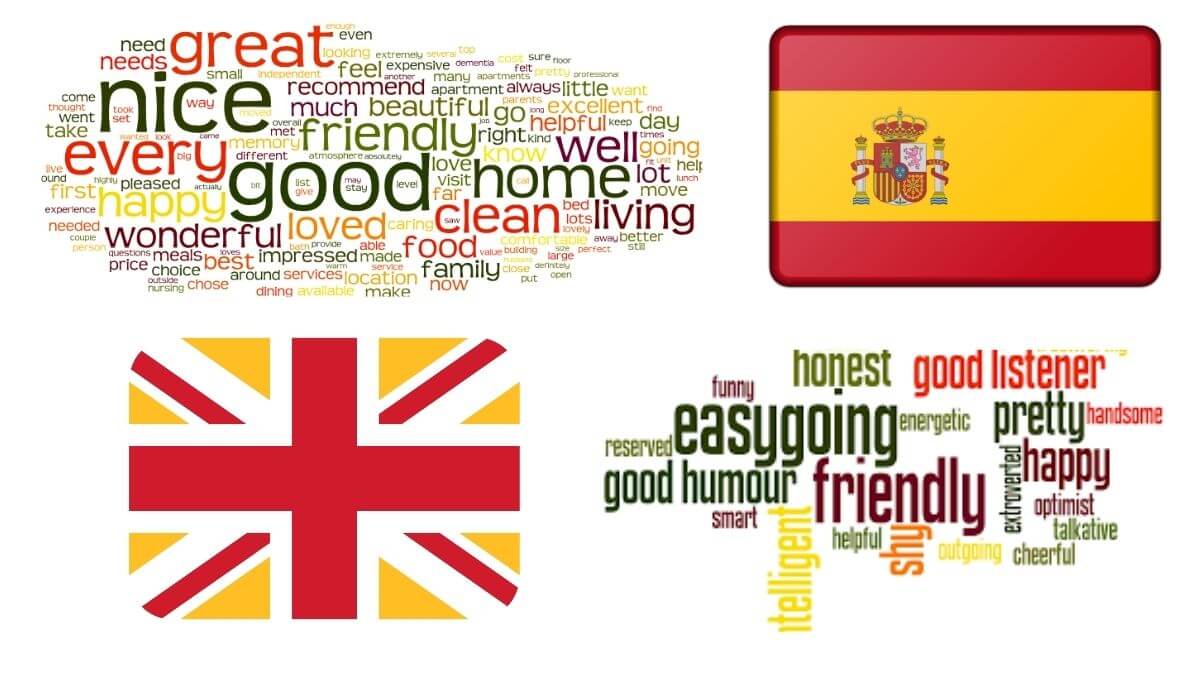The Royal Spanish Academy (RAE) defines Anglicism as “a turn or way of speaking typical of the English language”.
Our language, Spanish, is full of Anglicisms: sándwich (bocadillo), shock (estado impactante), parking (aparcamiento), blog (bitácora), casting (audición), chat (conversación), copyright (derechos de autor), online (en línea), email (correo electrónico), link (enlace), show (espectáculo), tour (visita guiada) …
The list could continue to show examples of anglicisms given the number in existence. Anglicisms can also have more complex forms.
There are certain phrases or phrases in English that they use when writing. In these cases, the rule for them is the same writing as for words, that is, indicate their foreign origin by writing phrases in italics or between quotation marks.
Anglicisms are also called linguistic borrowings from English into other languages, i.e. words, expressions and idioms that, in our case, Spanish often borrows from English, even though it has its own sources.
They are very common in the language used by young people because of the influence the media has on the way they speak and express themselves.
They are also common in technical language (mainly in science and technology), due to the number of scientific research articles published in the English language today and their presence in the development of new technologies.
Italics or quotation marks should be used when citing them, and the format should be maintained throughout rather than alternating between cited sources.

They are present in many areas of the Spanish language, such as:
Media: jeans, gloss, lifting, celebrity, mall, blue jeans, happy hour, shopping. In sports information, Anglicisms have an even greater presence and are used in direct proportion to the foreign origin of the sport, the newness of the sport among Spanish speakers and its internationalization. Examples: goal, corner, football, shoot, golf, rugby, cricket, básquetbol, voleibol, club, puénting…
Technique: on the scientific and technological information pages of newspapers. They are used by journalists because they tend to think that if they were translated, they would lose the accuracy and quality of the writing. Examples: burnout, bluetooth, blog, weblog, software, hardware, Windows…
Computational: For the same reason as in the previous section, in many cases literal translation is not even done in this line of work due to the precision with which both workers and consumers communicate through Anglicisms. Examples: hard copy, directory, port, to remove…
Economy: basically, the presence in this context is due to the globalization that the planet has suffered in the 21st century. Currently, economic information has a special section in all newspapers. Examples: marketing, insurance, refinancing, diseconomy, cash, Flow, holding, stock, dumping…
Leisure: the following characteristics as in the previous sectors, we find examples such as thriller, primetime, celebrity, reality show, hobby, spoiler, etc.
Education: Finally, to emphasize the influence of Anglo-Saxon culture in our country and therefore in our language, we have a vital sector in the growth of our society. Examples: alumni, coaching, test, parenting, campus, master, etc.
Anglicisms are types of foreign words that, depending on the case and point of view, can be classified as legitimate or illegitimate, depending on the use they are given and the meaning they achieve. These are common in all frameworks, however they are rejected by even the most purist positions on language, i.e. those who consider their inclusion in language unnecessary, given that it generally has the ability to name any referent or new word formation. Another part of the population, on the other hand, believes that foreign words can be necessary, especially in cases where the mother tongue cannot express itself accurately.

These anglicisms can consist of:
Lexical loans: in words or idioms copied verbatim from English (online).
Spanishized terms: in many cases recognized as new parts of the Spanish language (“tuitear” insted of “tweet”).
Syntactic turns and set phrases: (hacer sentido instead of “tener sentido”).
Normally, the purpose of anglicisms is only to enrich the language and fill its gaps, except those that respond to banal reasons such as fashion, a frequent attribute among the adolescent population.
A number of anglicisms with great significance in our language are also listed.
Football. When castellanized it became what we now call “fútbol”, so fútbol is a Spanish word of English origin, the word “balompié” is not used to refer to the same sport.
Hippie/hippy. Its Spanish adaptation would be “jipi”.
Parking. One of the most used, with daily use among the population, regardless of the field, regardless of the status it has. However, it is recommended to use the Spanish voices: aparcamiento, estacionamiento and parqueadero.
O.K. It is replaced by “vale”, “de acuerdo”, “perfecto”, and other words that indicate approval. Its great success is due in part to the ease when considering it within the vocabulary we use, since it is a short and effective word at the same time.
Hobby. An interest or pastime used indistinctly by the Spanish.
Bacon. Anglo-Saxon way of referring to the type of meat we call tocino or pancetta. We see Anglicism being used more in the Spanish context..
Test. An asterisk when referring to an exam or test where a grade will be awarded.
Anglicisms with the equivalent in Spanish
They are those words that are typical of the English language but that have an equivalent term for use in Spanish. These are called adapted anglicisms. What often happens is that people prefer to use the English term instead of the Spanish equivalent.
The Royal Spanish Academy recommends the use of equivalent words, which is perfectly valid, instead of continuing to use the English terminology. So, for example, we should use “conversar” or “charlar” instead of “charlar”, “teléfono inteligente” instead of “smartphone”, “güisqui” instead of “whisky”, “logotipo” instead of “logo”…
The following list shows some English words that already have their equivalent in Spanish.
- Boomerang: Bumerán
- Firewall: Cortafuegos
- Link: Enlace, vínculo
- Magazine: Magacín
- Master: Máster, o maestría
- PC: Ordenador personal
- Blíster: blíster
In conclusion, we should highlight the influence of the Anglo-Saxon culture, on our vocabulary, with an extensive list of terms that are used daily by Spanish society.



